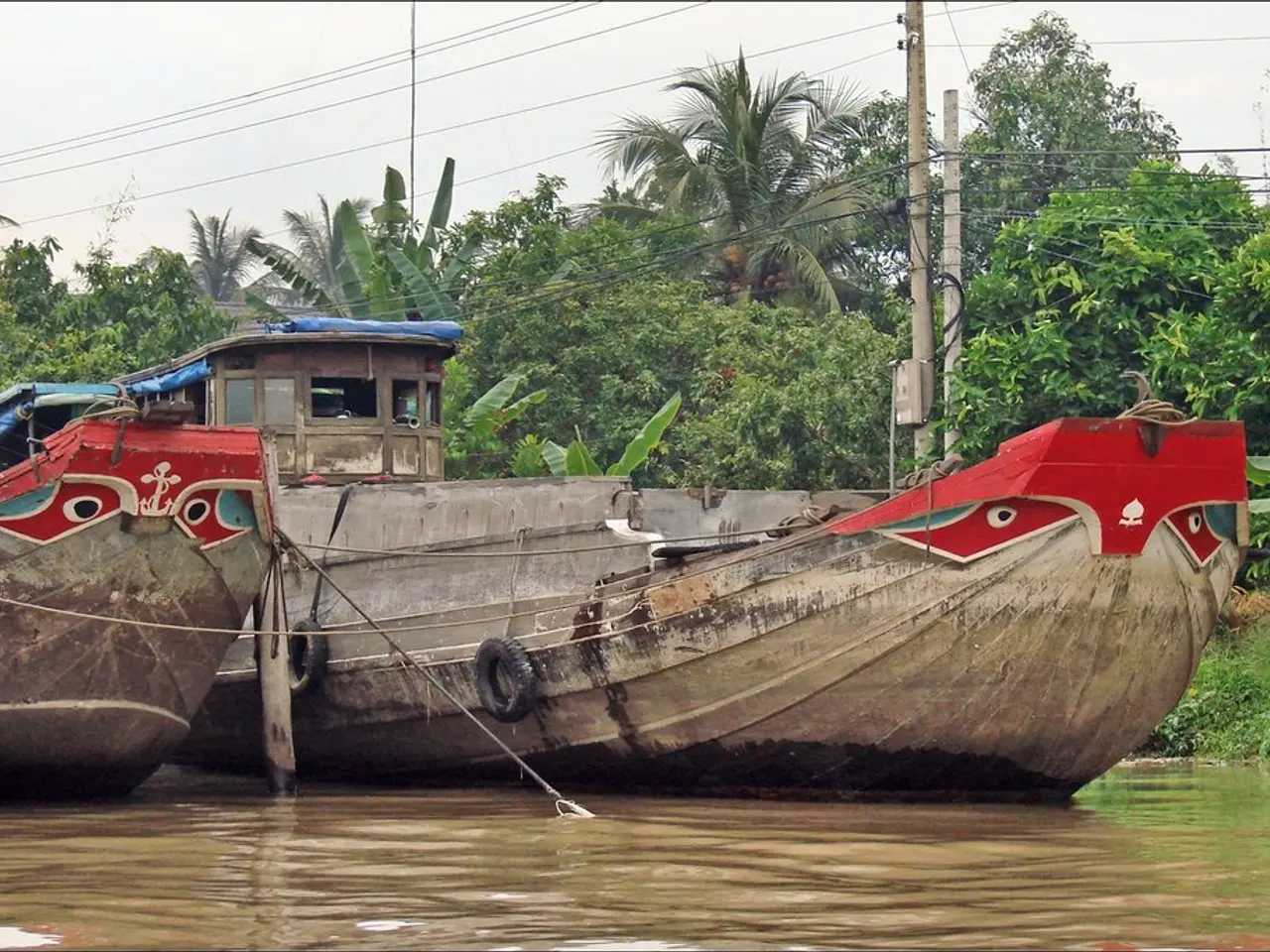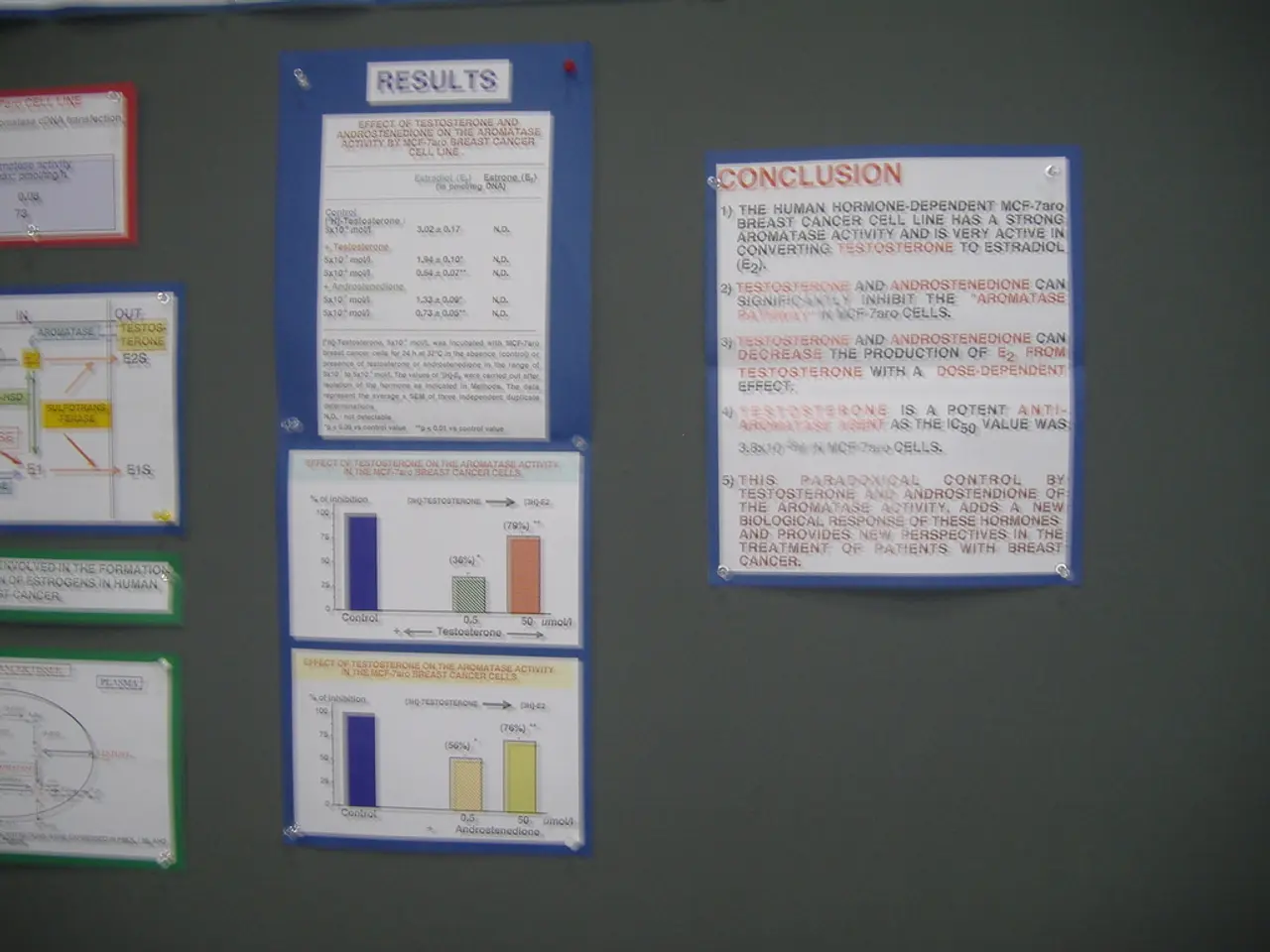Reduced ambition for offshore wind energy in the Netherlands
In the realm of renewable energy, the offshore wind industry is encountering significant setbacks in both the US and Europe, with China making notable advancements.
**US Setbacks**
The US offshore wind sector has been impacted by policy changes and regulatory hurdles. A federal halt on new offshore wind leasing on the Outer Continental Shelf has essentially paused new project developments. Additionally, the Trump administration's policies, such as a memo on offshore wind, have created uncertainty and contributed to delays in contract negotiations.
The US domestic supply chain for offshore wind components remains weak, which poses a significant challenge for new project developments. Projects like the Atlantic Shores and Empire Wind have faced specific challenges. The Atlantic Shores project was cancelled after its air permit was revoked, while Equinor's Empire Wind faced a stop-work order from the Department of the Interior, which was later lifted.
**Netherlands Challenges**
While the search results do not specifically address the Netherlands, common challenges in the offshore wind industry include regulatory hurdles, economic factors, and supply chain issues. Europe, where the Netherlands is located, accounts for 60% of the cancelled or suspended offshore wind capacity, indicating that European countries are facing similar challenges due to shifting market conditions and regulatory delays.
**China's Advancements**
In contrast to the US and European challenges, China continues to expand its offshore wind capacity, exceeding 40 GW. The government has implemented reforms to improve investment stability.
**Global Delays and Cancellations**
Offshore wind projects worldwide are facing setbacks, with delays and cancellations reaching 300 GW globally, according to recent data.
Meanwhile, the art world is abuzz with an exhibition at the UK's Bethlem Museum of the Mind showcasing art inspired by patients' dreams and nightmares. The works on display range from the 19th century to the present. One piece, drawn by an arsonist held in the "criminal lunatic department" between 1829 to 1838, depicts London's "destruction due to godlessness."
In the technology sphere, China is constructing an underwater data center six miles off Shanghai to reduce cooling costs. However, Microsoft has reportedly shelved a similar underwater data center project.
More than 30 Latin American institutions are collaborating to build a localized version of ChatGPT, trained on local languages and nuances, under the "Latam-GPT" project. This initiative includes Indigenous languages and dialect variations.
Moscow is debating a return to Soviet-style censorship, while the Netherlands has reduced its offshore wind power generation goal by up to 40%. The Dutch climate minister finds the previous target of 50 gigawatts by 2040 "not realistic."
[1] Source: Reuters, Windpower Monthly, and Offshore Wind Journal.
- Environmental-science researchers are studying the impacts of climate-change on ocean currents, as it could potentially impede the growth of the offshore wind industry, especially in regions like the US and Europe that are currently facing setbacks in the development of their offshore wind sectors.
- Given the delays and cancellations in offshore wind projects around the globe, finance institutions may be hesitant to invest in environmental-science projects, such as research into renewable energy sources like wind and solar, due to the perceived financial risks associated with these industries.
- A shift towards more sustainable energy sources, such as offshore wind, could encourage the development of innovative energy-saving technologies within the industrial sector, contributing to a more efficient and environmentally-friendly economy, and furthering the advancements made in the field of science.




